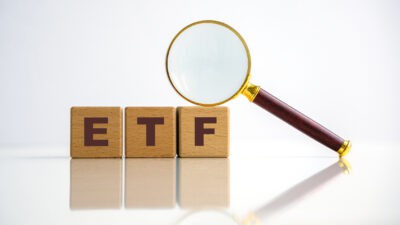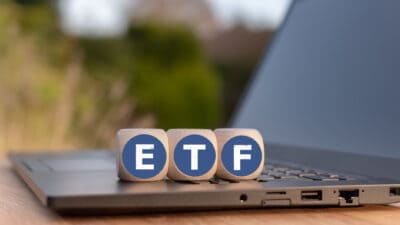Exchange-traded funds (ETFs) are great for passive investing in my opinion.
The idea behind an ETF is that investors can buy a fund through a stock exchange like the ASX. Previously, people had to apply to the fund provider directly and buy unlisted units.
Some of the biggest providers in Australia are Vanguard, Blackrock (iShares) and BetaShares.
Here are some of the main reasons why they're great for passive investing:
Usually based on a diversified index
ETFs are usually diversified because they're based on a good, diversified index.
Diversification is an important part of lowering investment risk. Being invested in dozens or hundreds of shares is usually lower risk than owning a portfolio of a handful of shares.
For example, Vanguard Australian Shares Index ETF (ASX: VAS) is invested in 300 ASX shares and iShares S&P 500 ETF (ASX: IVV) is invested in 500 US shares.
Something like Vanguard U.S. Total Market Shares Index ETF (ASX: VTS) is invested in thousands of shares.
Not only do ETFs offer diversification by the sheer number of shares owned, but the broad based ETFs are also invested across a variety of industries like IT, healthcare, industrials and so on. Owning shares in different industries helps in times like this current COVID-19 era.
However, you can also invest in industry-specific ETFs like BetaShares Asia Technology Tigers ETF (ASX: ASIA) or Vanguard Australian Property Securities Index ETF (ASX: VAP).
Constantly shifting holdings
One of the most difficult things with investing in individual shares is that it's hard to know what to buy and when to sell.
I've already mentioned that ETFs offer upfront diversification. But I like that you don't have to think about what to buy or sell with this type of investment. It's regularly making the automatic investment decisions for you.
As businesses get bigger and claim more market share, they'll become a bigger part in the index. Similarly, if there are shares that are performing poorly then their market caps will decline and they will become a smaller part of the ETF's holdings.
Low costs
One of the biggest benefits of ETFs is that the best ones come with very low costs. Tracking an index doesn't cost much for the provider. It's not like an active fund manager that charges high fees.
Some options have management fees that are very close to 0%, which leaves more of the returns in the hands of the investor. The iShares S&P 500 ETF has an annual management fee of 0.04%, Vanguard U.S. Total Market Shares Index ETF has an annual management fee of 0.03% per annum. Even BetaShares Australia 200 ETF (ASX: A200), an ETF focused on the ASX, only has an annual management fee of 0.07%.
Fees can act like termites on your nest egg fund. If you're paying high fees it could mean tens of thousands of dollars less for your portfolio by the time you hit retirement.
Solid returns
There is a lot of analysis out there that shows a lot of active managers regularly underperform the index, particularly after fees. There are some fund managers that add value, but you have to be picky finding them.
You hardly need to do any investing research to invest in an ETF, yet it's possible to produce returns better than a professional who's looking at shares full time. How great is that?
Different options have different performances. The ones that have a high level of exposure to US shares have done particularly well in recent years.
For example, the iShares S&P 500 ETF has returned an average of 15.7% per annum over the past decade to 31 May 2020.
Over the past five years BetaShares NASDAQ 100 ETF (ASX: NDQ) has produced an average return per annum of 20.1%.
Vanguard Australian Shares Index ETF has produced an average return per annum of 7% per annum over the past decade. Australian shares haven't performed as well, but don't forget that we're in the middle of the COVID-19 pandemic which has hurt bank share prices more than some other sectors.
Foolish takeaway
I think that passive investing is the way to go for many people, particularly if they don't have the time or mindset to invest in individual shares. You could even create a portfolio with a combination of ETFs and the best individual growth shares.






